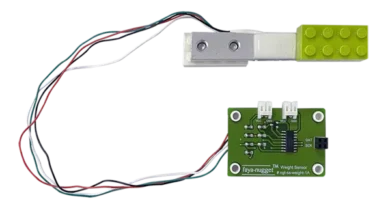5 Pointers to Get Home Health Aide Training Started
Are you considering enrolling in home health aide (HHA) training so you can leverage your nurturing, loving, and considerate nature within a new professional path?
If so, you could be on to a good thing. HHA training provides you with access to great employment possibilities and a career that provides a strong sense of self-worth.
Top 5 Considerations Before Starting HHA Training
Before starting training, take into account the six suggestions below to make sure you succeed:
Investigate Your Options To Gain Knowledge of The Profession
Consider all of your options before deciding to work as a home health aide.
Consider first taking caregiving classes. You can use these to study the fundamentals of your intended vocation.
Research the organizations that are available to provide trainees with support. There are also specialist agencies out there that support home healthcare professionals with training programs, seminars, and classes.
1. Consider your driving forces
What are my motivations? Consider this before deciding to start your training to become a home health aide. This will enable you to start the process of change.
Explain why you want to work as a caregiver professionally and what motivates you to complete home health aide training.
To determine if you possess the best home health aide attributes that will help you succeed on the job doing common home health care duties, consider your motivations and the reasons you are interested in a career in home health care. You should also look into your interests and personality features.
2. Research your insurance requirements
If you plan to provide home health care in a self-employed capacity, research the insurance that will be beneficial to you. Home health aide insurance is on offer to cover you in the event things don’t quite go according to plan while you’re performing your duties.
3. Speak to people who already work in home health care
Ask for insights from individuals who have already attended home health aide training.
Speak with experienced caregivers to find out about the time and expense required for education, as well as salaries and job prospects.
You can better understand your potential professional route by getting input from others who have “been there, done that.”
However, don’t just take their word for it. To experience the surroundings, difficulties, and benefits firsthand, think about volunteering in the care context.
4. Research Possible Salaries
Look into the pay scales associated with your work options.
Ensure that you are satisfied with the outcomes.
Don’t forget that salaries will vary depending on the area, the facility, and your level of qualification.
Consider working directly for a family or institution on a self-employed basis if you’re interested in this subject but also want to earn as much money as you can. This approach can help you earn the most amount of money.
5. Complete a program of study or get a degree
Being a caretaker doesn’t necessarily require a degree. However, you will need to undergo some level of training. Research community colleges in your area that offer programs leading to certificates for prospective caregivers.
In addition, there are numerous institutions offering HHA training to people interested in careers in healthcare. These programs can typically be completed in a short amount of time.
To discover a course close to you, you can also go to the American Red Cross website. Simply look up nurse aide and home health aide training programs in your state.
There are a ton of fantastic options to consider if you decide to take the lengthier path to earn a more advanced certification or degree.
These occupations include licensed practical nurse (LPN), certified nursing assistant (CNA), certified medication aide (CMA), registered nurse, and nurse practitioner.




